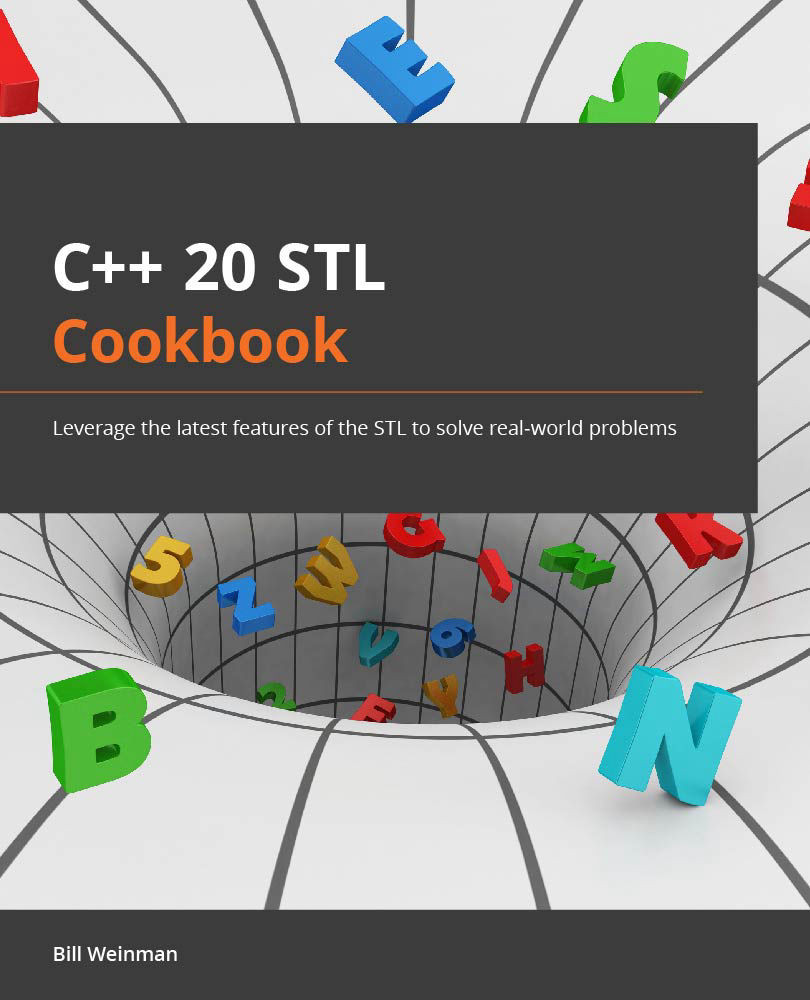-
Book Overview & Buying

-
Table Of Contents

C++20 STL Cookbook
By :

C++20 STL Cookbook
By:
Overview of this book
 Free Chapter
Free Chapter
 Sign In
Start Free Trial
Sign In
Start Free Trial

 Free Chapter
Free Chapter
String formatting has traditionally been a weak point with the STL. Until recently, we've been left with an imperfect choice between the cumbersome STL iostreams or the archaic legacy printf(). Beginning with C++20 and the format library, STL string formatting has finally grown up. Closely based on Python's str.format() method, the new format library is fast and flexible, providing many of the advantages of both iostreams and printf(), along with good memory management and type safety.
For more about the format library, see the Format text with the new format library recipe in Chaper 1, New C++20 Features.
While we no longer need to use iostreams for string formatting, it is still quite useful for other purposes, including file and stream I/O, and some type conversions.
In this chapter, we will cover these subjects and more in the following recipes:
string_view as a lightweight string object